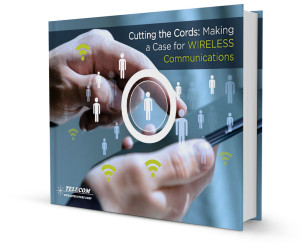
Now a days everyone claims that their internet service is smarter, better, faster, stronger. Thus, it’s important to stay informed and up to date about different connection types and internet speeds. It depends on how your internet is cabled, but most people today receive their connection either via a telecommunications phone line or a television or fiber optic line. Either way, many servers are run through a router that projects that internet connection across space to be picked up by wireless enabled devices.
Depending on how it is run, projected and received, your internet will run at different speeds. Internet speed is measured both for uploading and downloading in Mbps is MBps. Mbps translates to megabits per second and refers to the number of units of data your connection can move over the course of one second of time. MBps refers to a larger unit of measure, megabytes, which are roughly eight times larger than megabits. When an internet service provider promises fast speeds they usually give MBps as a reference, but may use more misleading terms like ‘megs’ or ‘megas.’ This is why it is important to know what internet speed you really require for your usage and what speeds your company can truly provide.
Most people have a tendency to want was is newest and fastest. For many who use the internet, however, top speeds may not be always be so necessary. It is useful to note the differences, as many service providers charge more for higher speeds, and you may be paying for speed you don’t need. For homes and businesses where the internet is utilized for more basic tasks like dealing with email, reading content based sites and the downloading of images and music, less than 6Mbps are usually needed. With the rising popularity of entertainment sites like Netflix and Hulu, many homes and offices need to be able to stream video content with minimum delays in buffering. Most people find that they need a 6-10Mbps range to accomplish such tasks. To many these speeds are a normal range for internet usage. Beyond that, up to the 10-15Mbps range speeds are faster and download wait times shorter, though the difference is really only felt in locations where many multiple devices are downloading video or gaming content all at the same time.While your internet bill may say you are paying for an 8Mbps, there are many reasons why you may not actually be receiving that as a running speed. If the structured cabling of your connection is week, improperly run or corroded by external interference, it can slow down your connection times. The greater strength and interconnectivity of the network, the more dependable connection and speeds will be, because they have stronger data streams to run along. Especially if your internet is run over phone wires, the bleeding of the signal can be greatly effected by outside sources. Sometimes speeds are slowed by the functionality of the wireless router and the reception of your various devices. You can test your speeds through various websites that offer the service, and sometimes at the site of your provider. Remember, most providers only guarantee a percentage of the speed you have purchased, so make sure to get what you, and make sure that you are in fact getting the speeds you payed for.So let us know, do you know how fast your internet really is?

 Wired networking is quickly becoming the dial up internet of the current decade as wireless technology is advancing at an incredibly rapid pace. Is going wireless in the best interest of your business? Download our FREE book right now entitled "Cutting the Cords: Making a Case for Wireless Communications" and find out!
Wired networking is quickly becoming the dial up internet of the current decade as wireless technology is advancing at an incredibly rapid pace. Is going wireless in the best interest of your business? Download our FREE book right now entitled "Cutting the Cords: Making a Case for Wireless Communications" and find out!